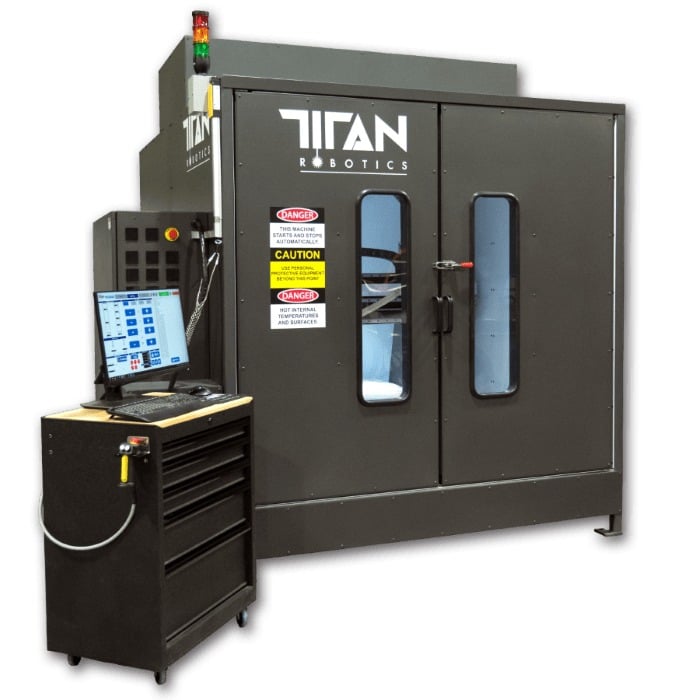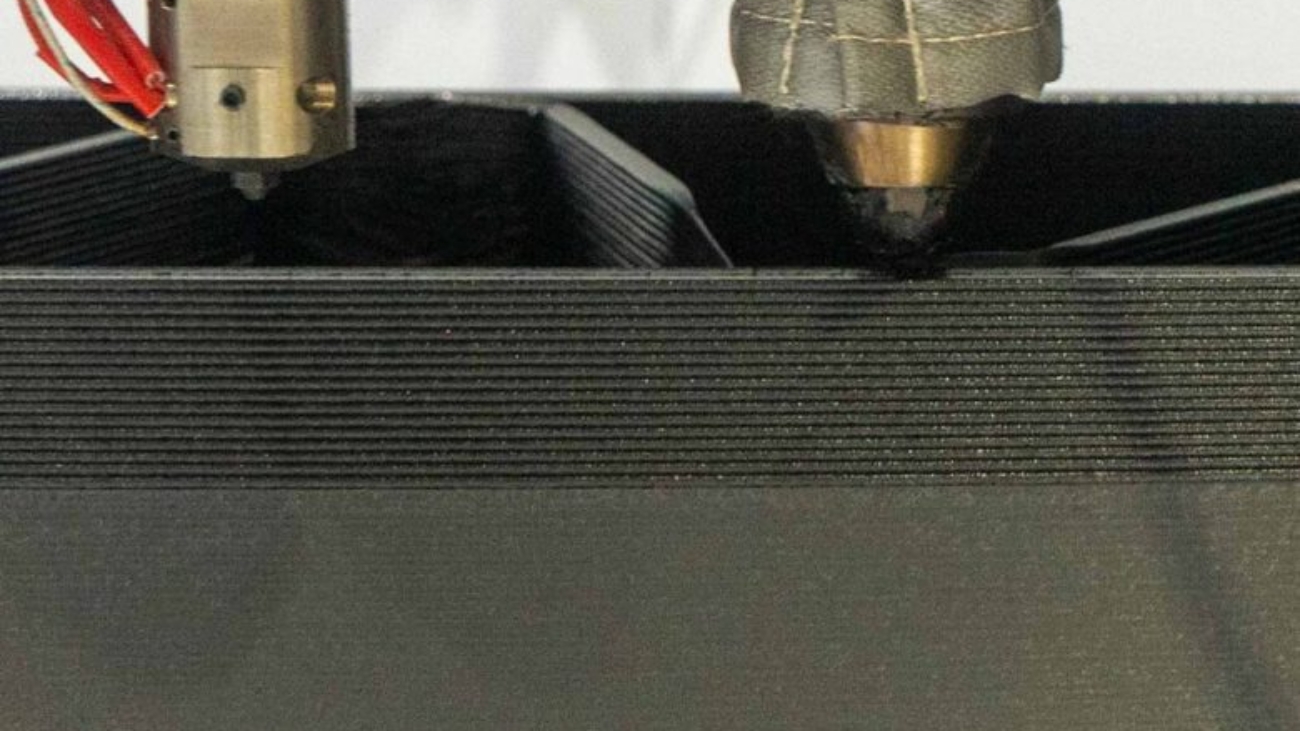3D Systems has entered into an agreement to acquire Titan Additive LLC, aka Titan Robotics, the Colorado-based designer and fabricator of large-format, industrial 3D printers. As a market leader in pellet-based polymer extrusion 3D printing technology, and the only manufacturer offering hybrid tool head configurations, Titan Robotics provides solutions to its customers by developing application-specific processes using Titan’s unique large-format additive manufacturing (LFAM) technology. With this acquisition, 3D Systems will expand the strength and breadth of its polymer AM solutions portfolio to address new applications in markets such as Foundries, Consumer Goods, Service Bureaus, Transportation & Motorsports, Aerospace & Defense, and General Manufacturing.
The deal is significant in more than one way. On the one hand it shows how 3D Systems is always ready to expand its 3D printing business in new directions. Not so long ago the company had made important investments in the bioprinting segment. Another element to consider is that LFAM technologies are effectively growing very rapidly. Although finding applications and selling very large AM systems to new clients is no easy task, the potential uses of LFAM technologies in prototyping, tooling and final part production are very broad and growing by the day. Finally, a consideration about the symmetry of the AM market. Not so long ago, Stratasys, the company that was built on the invention and commercialization of material extrusion (FDM) technology, invested in large format SLA – the technology that 3D Systems was built on – by acquiring the UK company RPS. Now, 3D Systems “returned the favor”, with large format extrusion.

Manufacturing on Demand
Titan Additive is the only manufacturer offering hybrid tool head configurations that include pellet extrusion, filament extrusion, and a spindle tool head for precision finishing. These configurable systems give the customer tremendous flexibility to choose the best-combined format to meet their application need. The resulting solutions can deliver large, industrial parts using heated build platforms and chambers that scale from 30” x 30” x 45” to as large as 50” x 50” x 72” with print speeds up to 30,000 mm per minute. As a customer’s application focus expands in the future, the modular Titan system can be easily upgraded to accommodate new materials and product configurations to best meet their targeted performance and cost goals.
“The team at Titan Robotics is thrilled to become part of the world-class organization at 3D Systems, as Titan’s leadership team of Clay Guillory, Bill Macy, Maddie Guillory and I are committed to continuing Titan’s mission of changing the traditional manufacturing landscape with production additive manufacturing solutions,” said Rahul Kasat, CEO, Titan Additive LLC. “We are excited by the synergies this acquisition will enable to expand the adoption of industrial 3D printing across a wide variety of manufacturing industries, as pellet-based extrusion and hybrid manufacturing systems become the new standards for production applications.”
Direct pellet-fed 3D printing opens up a wide choice of material options, with hundreds of formulations commercially available ranging from low durometer (soft) to high performance and highly filled resins, such as high loadings of carbon fiber and glass fiber. This allows customers to not only select the ideal material for their application but also to realize potential cost savings of up to 75%. The combination of fast production and short cycle times, and lower costs make these solutions ideal for a variety of applications including sand casting, tooling (including thermoforming, vacuum forming, sheet metal forming, composite tooling, etc.), jigs and fixtures for assembly and manufacturing operations and end-use parts applications such as an alternative to injection molding, or for high-temperature requirements (such as air ducts, underhood, brackets, and structural components).
Titan Robotics was represented by Reynolds Advisory Partners in this transaction. 3D Systems expects this transaction to close in April of 2022. The company will comment further on this growth investment in its upcoming earnings call, scheduled for Monday, February 28, 2022, at 4:30 p.m. Eastern Time. For more information, please visit the company’s website.
You might also like:
Mitsubishi Electric launches AZ600 digital wire-laser metal 3D printer: The systems also present this digital additive-manufacturing technology combined with simultaneous 5-axis spatial control and coordinated control of machining conditions, to deliver stable, high-quality 3D printing. Furthermore, the company’s goal is to contribute to manufacturing in a decarbonized era by reducing energy consumption, saving resources by shortening of processing time and using highly efficient production methods such as ‘near-net-shape’, and supporting the build-up of repairs for the maintenance of specialist parts for automobiles, ships and aircraft.
* This article is reprinted from 3D Printing Media Network. If you are involved in infringement, please contact us to delete it.
Author: Davide Sher


Leave A Comment